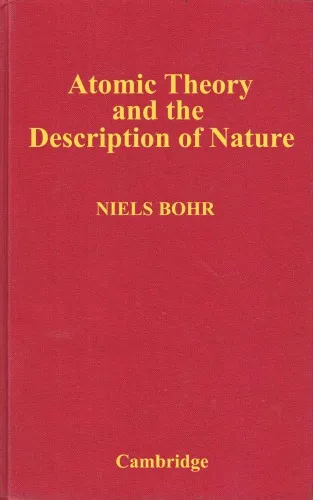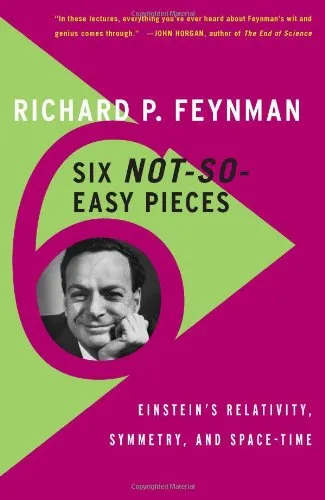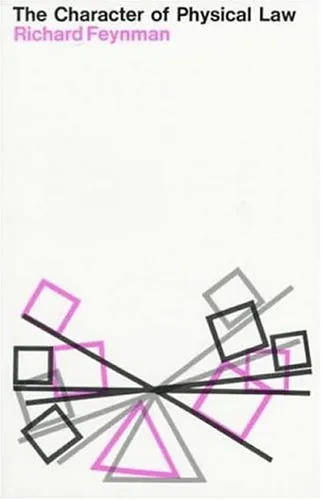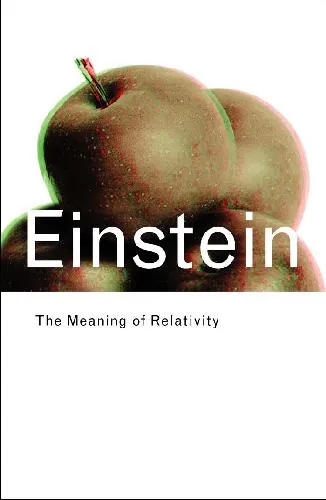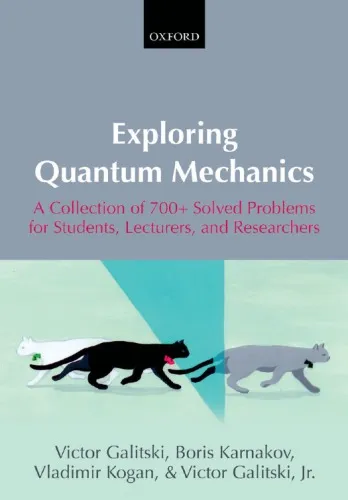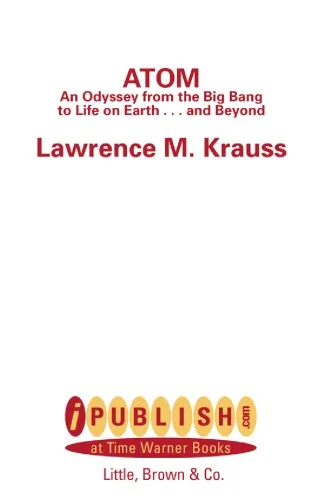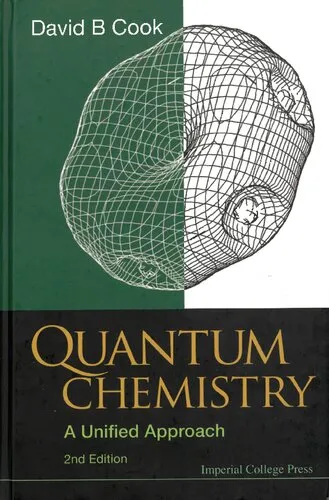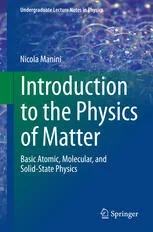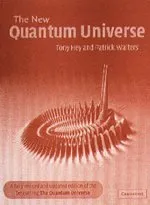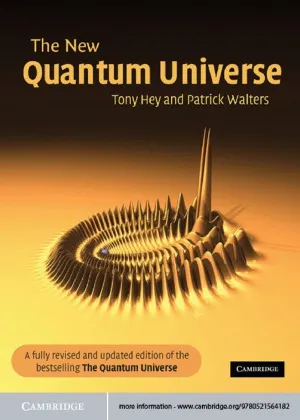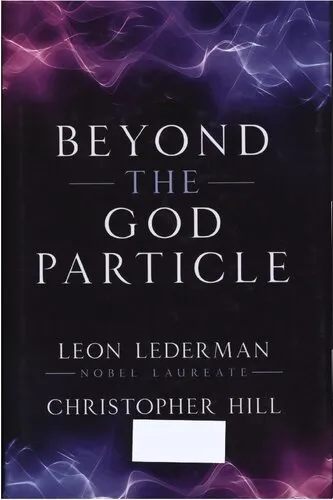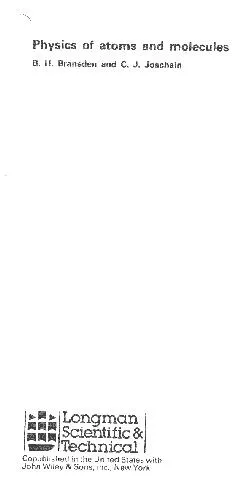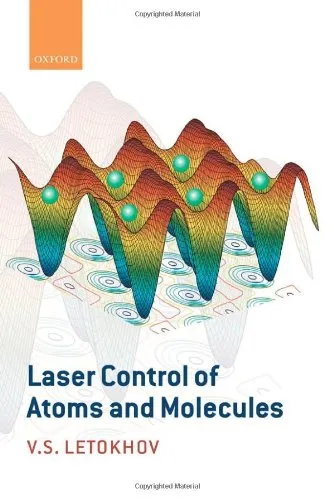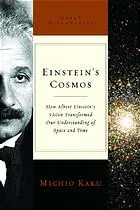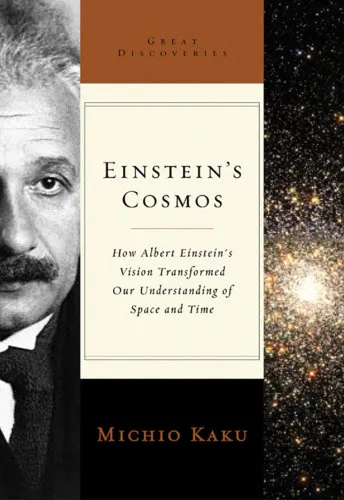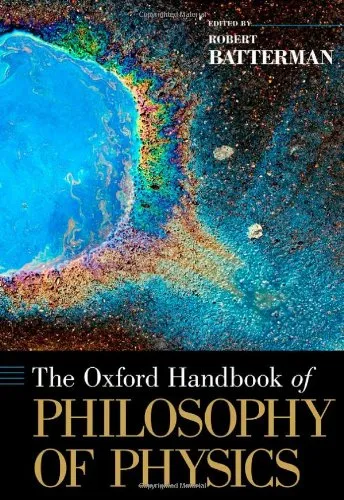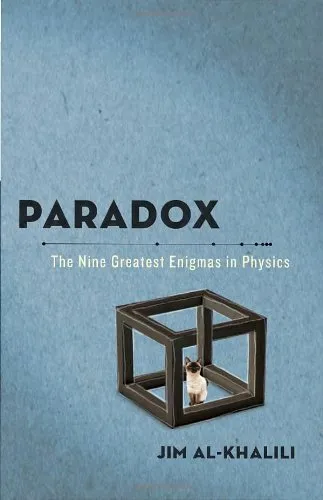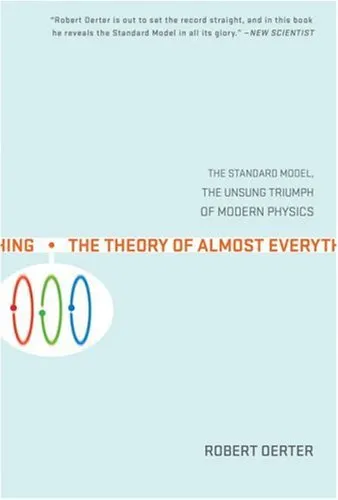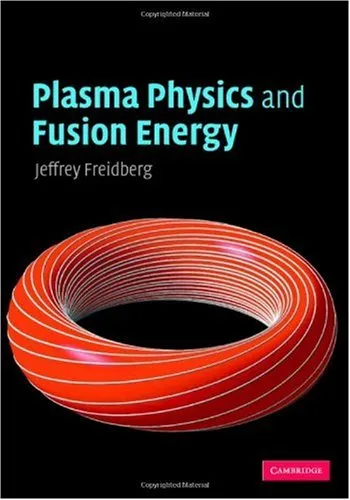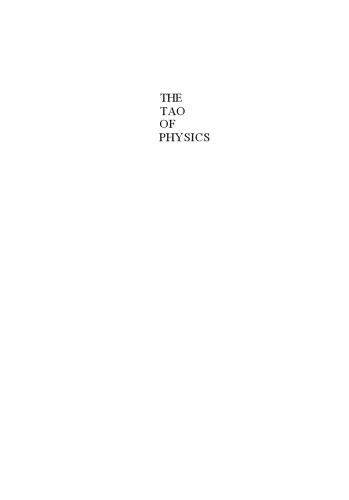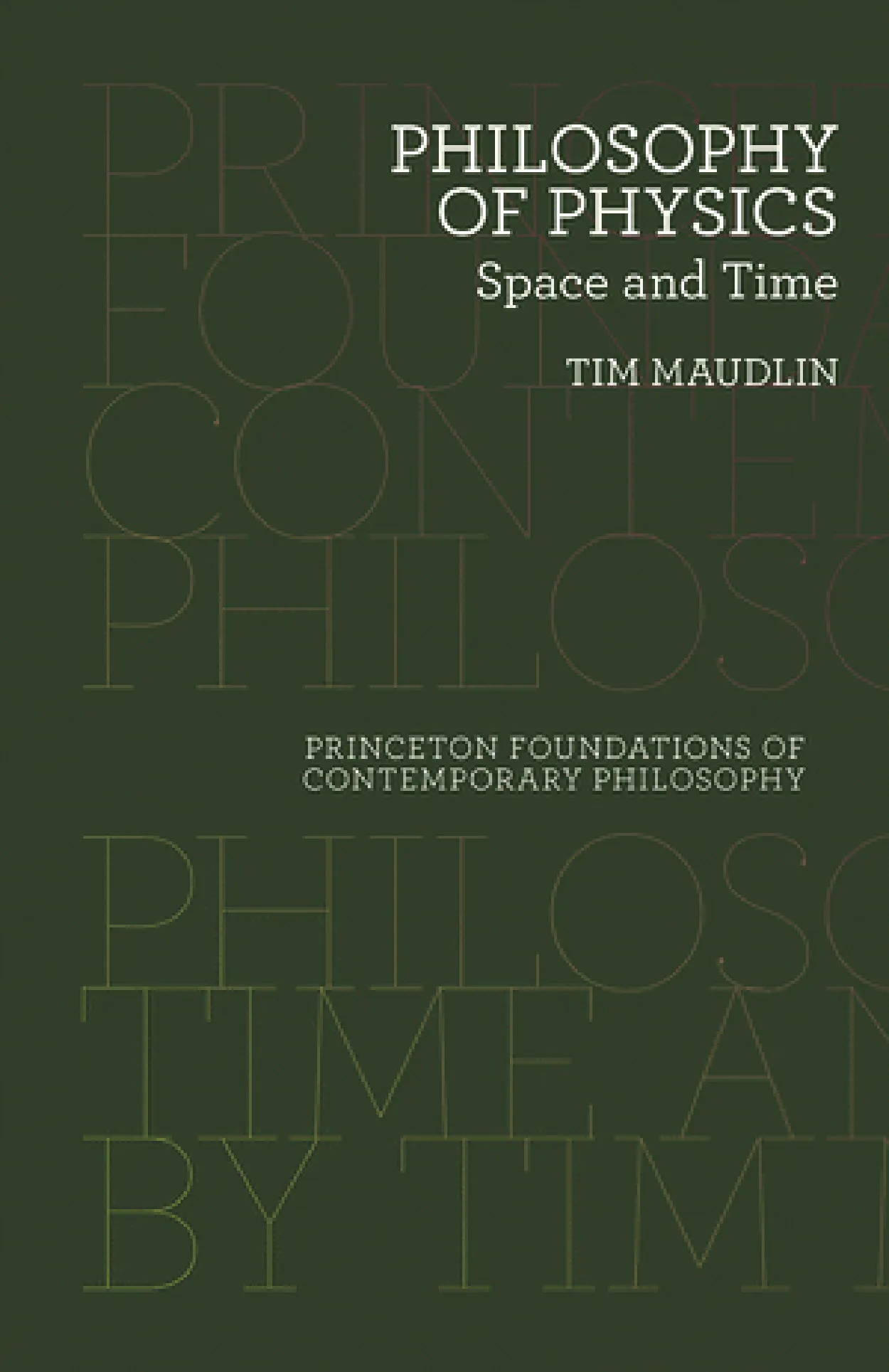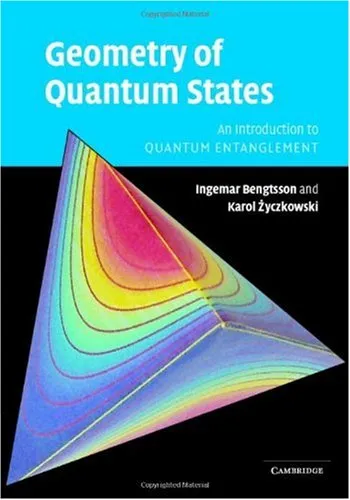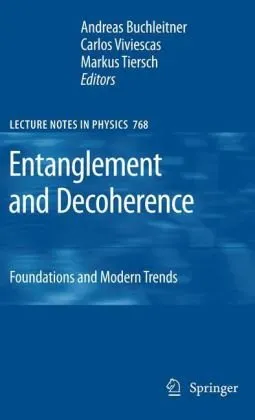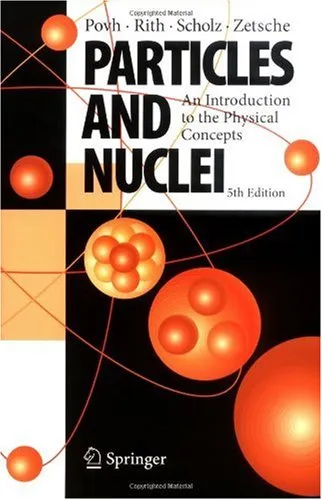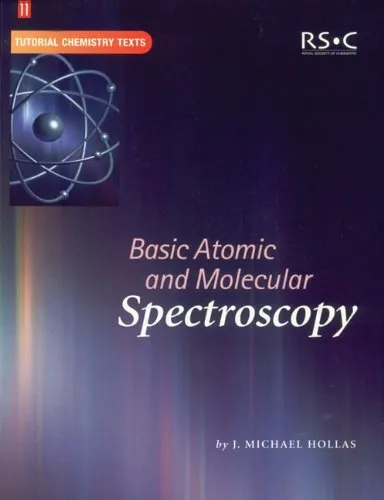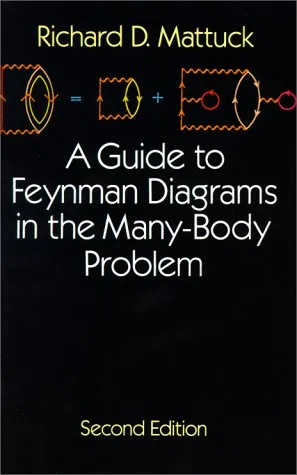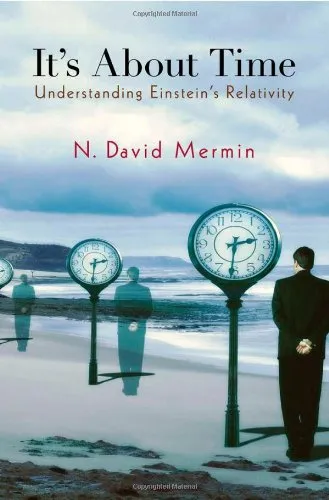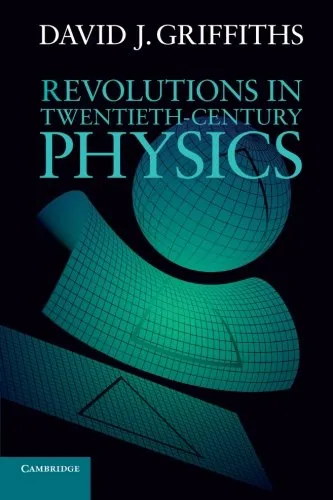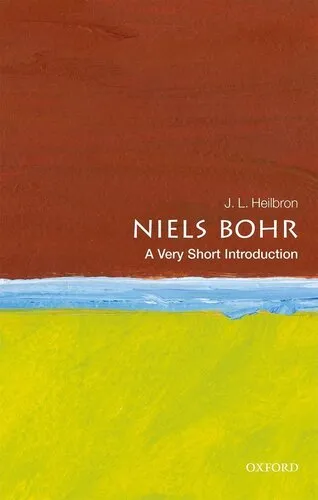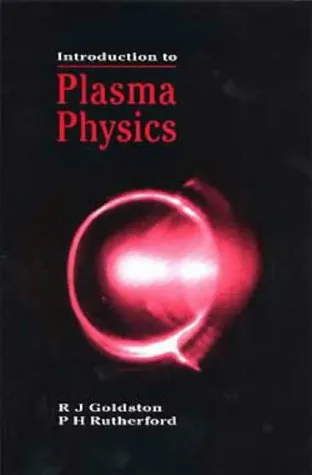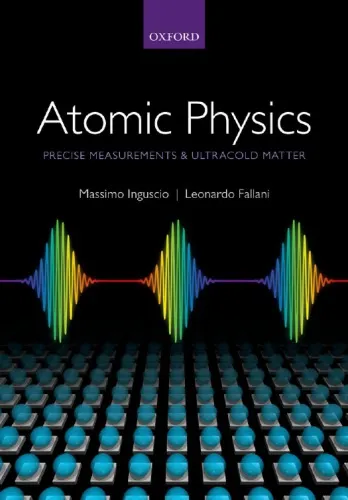Atomic Theory And The Description Of Nature
4.4
بر اساس نظر کاربران

شما میتونید سوالاتتون در باره کتاب رو از هوش مصنوعیش بعد از ورود بپرسید
هر دانلود یا پرسش از هوش مصنوعی 2 امتیاز لازم دارد، برای بدست آوردن امتیاز رایگان، به صفحه ی راهنمای امتیازات سر بزنید و یک سری کار ارزشمند انجام بدینRelated Refrences:
معرفی کتاب "Atomic Theory And The Description Of Nature"
کتاب Atomic Theory And The Description Of Nature یکی از مهمترین و تأثیرگذارترین آثار من در زمینه فیزیک نظری و فلسفه علم است. این کتاب به تحلیل مفهوم نظریه اتمی و نقش آن در توصیف طبیعت پرداخته و تاثیر مفاهیم فلسفی در پیشرفت علم مدرن را بررسی میکند. اثری جامع که در تلاش است تا پل ارتباطی بین علم، فلسفه و تجربههای انسانی باشد. در مقاطع مختلف، این کتاب با هدف ایجاد تعادل میان تفسیر علمی و فلسفی جهان طبیعی تدوین شده است.
خلاصهای از کتاب
کتاب شامل چندین مقاله و سخنرانی است که اصول بنیادی نظریه اتمی را توضیح میدهد. در اینجا، من به عنوان نویسنده کتاب، همراه با بررسی روند تکاملی نظریه اتمی از دوران باستان تا عصر مدرن، بر چگونگی تأثیر مفاهیم نظیر مکانیک کوانتومی و اصل complementarity بر درک ما از طبیعت تمرکز دارم. این اصل به معنای ترکیب دو دیدگاه مختلف، اما تکمیلکننده، از واقعیت برای ارائه تصویری جامعتر است. در این کتاب، موضوعاتی همچون محدودیتهای روش تجربی، مفهوم واقعیت فیزیکی، و ارتباط میان مشاهدات علمی و تفسیرهای فلسفی بررسی شدهاند.
نکات کلیدی کتاب
- تأکید بر complementarity به عنوان یکی از اصول بنیادی در نظریه کوانتوم.
- تجزیه و تحلیل محدودیتهای دانش انسانی در برخورد با طبیعت.
- نشان دادن ضرورت استفاده از فلسفه برای درک بهتر از فیزیک.
- شرح مفصل درباره مکانیک کوانتوم و چالشهای آن در پیوند با مفاهیم فلسفی.
- ارتباط میان علم تجربی، مشاهدات و تحلیلهای استدلالی.
نقلقولهای مشهور از کتاب
"Every description of natural processes must be based on ideas which have been introduced and defined by the classical theory."
"The task of science is both to extend the range of our experience and reduce it to order."
"We must be clear that when it comes to atoms, language can be used only as in poetry."
چرا این کتاب مهم است؟
کتاب Atomic Theory And The Description Of Nature به دلیل ارائه نگاهی متفاوت و عمیق به مبانی علم مدرن، یکی از آثار کلاسیک و ماندگار در تاریخ علم به شمار میآید. این کتاب نه تنها به دانشمندان و فیزیکدانان، بلکه به فیلسوفان و علاقهمندان به شناخت طبیعت نیز کمک میکند تا درک واضحتر و کاملتری از جهان به دست آورند. اصل complementarity که در این اثر به تفصیل بررسی شده، بهعنوان یکی از مفاهیم کلیدی مکانیک کوانتومی نقش اساسی در توسعه علوم مدرن ایفا کرده است. این اثر نشان میدهد که چگونه تفسیرهای فلسفی میتوانند علم را در مسیر پیشرفت راهنمایی کنند.
با ترکیبی از زبان علمی و فلسفی، این کتاب پلی میان فیزیک عملی و تحلیلهای نظری را ایجاد میکند و برای هر خوانندهای که به دنبال فهم عمیقتر از طبیعت است، منبعی بینظیر به شمار میآید. مفاهیمی که در این اثر توضیح داده شدهاند، نهتنها تاریخ علم را متحول کردهاند، بلکه به شکلدهی به سوالات بنیادین درباره معرفت علمی و جهانشناختی نیز کمک کردهاند.
Introduction to "Atomic Theory and the Description of Nature"
Written by the eminent physicist Niels Bohr, "Atomic Theory and the Description of Nature" stands as a monumental work in the understanding of quantum theory and the philosophy of science. It presents a detailed exposition of Bohr’s pioneering ideas and reflects on the profound implications of atomic theory on various aspects of human thought and scientific philosophy.
In this book, Bohr delves into the complementary principles of quantum mechanics, arguing for the necessity of considering both wave and particle dualities when describing atomic phenomena. It is not only a technical treatise on physics but also an exploration of the nature of knowledge and the epistemological shifts that the new science demanded.
The integration of scientific exploration with philosophical reflection makes this book an enduring classic, relevant to physicists, philosophers, and historians of science alike. By connecting abstract physical theories to broader philosophical questions, Bohr bridges the gap between empirical science and human understanding in a way that remains deeply inspiring today.
Summary of the Book
The book is a collection of essays and lectures written by Niels Bohr during the 1910s to 1930s. These pieces explore the revolutionary ideas of quantum mechanics and how they reshape our understanding of reality.
Bohr begins by emphasizing the limitations of classical physics in explaining atomic systems. He introduces the concept of complementarity—a cornerstone of his thinking—wherein seemingly contradictory properties, like the wave-particle duality of light, are both necessary for a complete description of nature. This concept challenges the notion of determinism and invites readers to rethink causality and observation in the scientific method.
A significant portion of the book discusses the role of observation in quantum mechanics, emphasizing that the act of measuring influences the behavior of particles. Bohr’s interpretation laid the foundation for what is now called the "Copenhagen interpretation" of quantum mechanics. He weaves together physics and epistemology, illustrating how scientific inquiry is tied to humanity’s conceptual frameworks.
Moreover, Bohr acknowledges the broader implications of atomic theory on philosophy, art, and even language. By highlighting how language struggles to capture quantum phenomena, he calls for humility in scientific pursuits and reinforces the idea that science is a human endeavor, marked by its limitations as much as its successes.
Key Takeaways
- The principle of complementarity is central to understanding quantum phenomena.
- Classical physics is insufficient to describe atomic behavior; quantum mechanics introduces radical new ideas about reality.
- Observation and measurement are integral to quantum mechanics, shaping the very behavior of particles being observed.
- Scientific knowledge is not absolute; it evolves based on the tools and perspectives available at a given time.
- Quantum physics not only revolutionized science but also influenced philosophy, art, and other human endeavors.
Famous Quotes from the Book
"The task of science is both to extend the range of our experience and to reduce it to order."
"Every word or concept, clear as it may seem to be, has only a limited range of applicability."
"It is the hallmark of any deep truth that its negation is also a profound truth."
Why This Book Matters
"Atomic Theory and the Description of Nature" is not just a book about physics; it is a profound exploration of epistemology, or the theory of knowledge. It portrays science as an evolving discipline, influenced as much by philosophical thought as by empirical discoveries.
The insights provided in this book are crucial for understanding the quantum revolution, which disrupted centuries of classical, deterministic thinking. By introducing the concept of complementarity, Bohr provided a framework for reconciling the paradoxical nature of quantum phenomena.
Furthermore, the book is an invitation to humility and open-mindedness. It reminds us that scientific theories are human constructs, limited by language and observation. For anyone interested in the philosophy of science, history of quantum mechanics, or simply the nature of reality itself, Bohr’s work is an essential cornerstone.
Even today, Bohr's ideas remain relevant, as quantum mechanics continues to serve as a foundation for cutting-edge research in physics, technology, and beyond. "Atomic Theory and the Description of Nature" is, therefore, a timeless text—a bridge between past discoveries and future innovations.
دانلود رایگان مستقیم
شما میتونید سوالاتتون در باره کتاب رو از هوش مصنوعیش بعد از ورود بپرسید
دسترسی به کتابها از طریق پلتفرمهای قانونی و کتابخانههای عمومی نه تنها از حقوق نویسندگان و ناشران حمایت میکند، بلکه به پایداری فرهنگ کتابخوانی نیز کمک میرساند. پیش از دانلود، لحظهای به بررسی این گزینهها فکر کنید.
این کتاب رو در پلتفرم های دیگه ببینید
WorldCat به شما کمک میکنه تا کتاب ها رو در کتابخانه های سراسر دنیا پیدا کنید
امتیازها، نظرات تخصصی و صحبت ها درباره کتاب را در Goodreads ببینید
کتابهای کمیاب یا دست دوم را در AbeBooks پیدا کنید و بخرید
1337
بازدید4.4
امتیاز50
نظر98%
رضایتنظرات:
4.4
بر اساس 0 نظر کاربران
"کیفیت چاپ عالی بود، خیلی راضیام"
Questions & Answers
Ask questions about this book or help others by answering
No questions yet. Be the first to ask!
